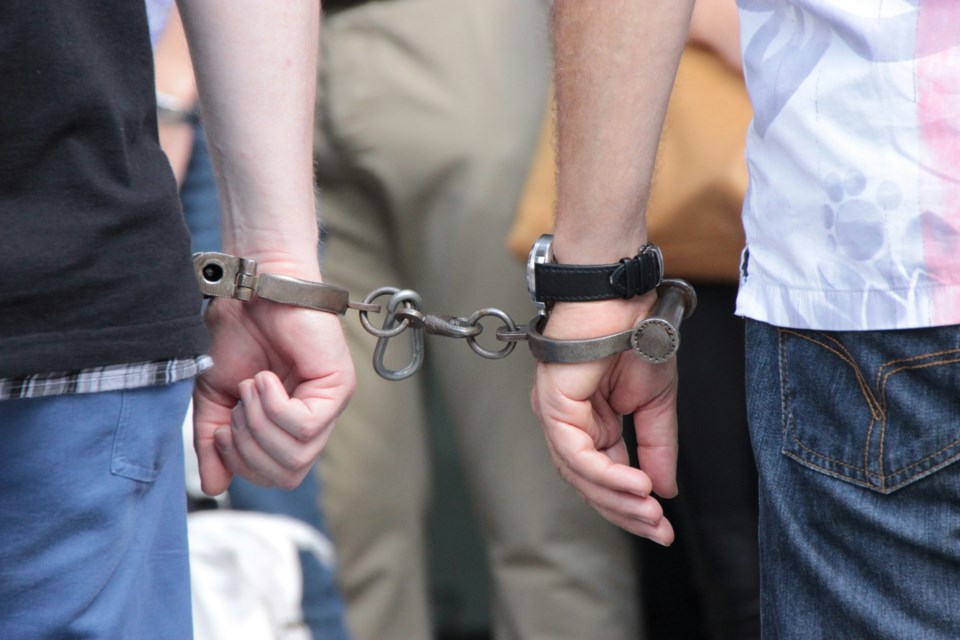Side note: Some of you may have noticed that I've recently disappeared from the news field. I took most of July off to visit my family in Russia – one of the most difficult (both physically and emotionally) holidays I could have come up with, and from my perspective, in today's world, it wasn't the safest trip either.
Now, to the topic: As I was travelling back to Canada, Russia and the West completed what's considered to be their biggest prisoner swap since the Cold War.
The exchange set free over two dozen people, mainly high-profile personalities, with 16 Americans and Russians detained by the Kremlin swapped for eight Russian nationals held in jails in the U.S. and Europe.
The Russian side got Vadim Krasikov, who was convicted in Germany in 2021 and sentenced to life in prison for a murder (apparently, the deal-breaking person for Moscow), as well as two alleged sleeper agents jailed in Slovenia, and men charged by federal authorities in the U.S., Norway and Poland.
Moscow released three Americans: journalists Evan Gershkovich and Alsu Kurmasheva (dual citizen), and corporate security executive Paul Whelan, along with several Russian political prisoners including Vladimir Kara-Murza, Ilya Yashin, Andrei Pivovarov and others.
Ever since all the released Americans and Russians were arrested, I couldn't resist the fear for their lives. So, as a person and as a journalist, I was indeed relieved when I saw the news about them being free and safe and finally talking to their families after months or years in Russian prisons.
Of course, there is a good chance that Russia will now use the fact that they were demanded for exchange by the West, to make them look even less reliable in the eyes of Russian citizens, which will affect the political efforts of those released. But to me, it was all secondary to the fact that they made it out.
To tell you the truth, this swap came as a surprise for me. After three weeks of visiting with people in St. Petersburg, I felt that they weren't expecting anything before the American election and until Donald Trump would claim the American helm again. But Joe Biden trumpeted this multinational deal.
It wasn't a secret that the exchange negotiations were in the works for a long time and well before Russian opposition leader Alexey Navalny - who definitely was a part of the swap talks – died in prison in February. So, the fact that the parties came to a historical agreement could mean that it was just natural progress. However, it could also mean that the Russian approach to this negotiation has changed after Biden announced in July he wasn't going to run for president. Or it could mean something else.
While the terms of this kind of trade have always been top secret, once the emotions and initial release went down, one of the first questions was what the price of this exchange would be. We won’t know the real price, but we’ll have to face the aftermath.
Will this deal embolden Russian President Vladimir Putin (and potentially other dictators around the world)? If taking an international hostage is an opportunity to reach goals, it will be used.
From family experience, I know that it already doesn't take much in that part of the world to be arrested. (There is a saying from Soviet times: if there is a person, a case will be found. It's something similar in meaning to "dig hard enough, and you can find dirt on anyone" but a bit more fatal and less digging is required. The statement is getting close to being as relevant today as it used to be in the USSR.)
The Russian choice of prisoners to be brought back also sends a message to others in similar positions, encouraging them to keep doing their jobs without worries for their well-being.
If we look at who was exchanged for whom, the potential cost of this exchange becomes even more obvious. Professional Russian agents and potential spies were swapped for a few random Americans and a bunch of political prisoners (a vague and broad category in today's Russia). It's nothing new, just bigger than before.
But that means that if Russia (or others) needs to reach some goals, be it getting its agents back, or maybe getting rid of some sanctions, or receiving some kind of technology or equipment, or something else, it can simply detain some foreigners or put a few of its own citizens behind the cells and start negotiations.
After all, lives were saved through the August 1 swap, and it's worth celebrating. But I'm afraid that success puts more lives at risk. And that's on top of other prices paid for this deal, which will probably remain top secret for the next decades.





